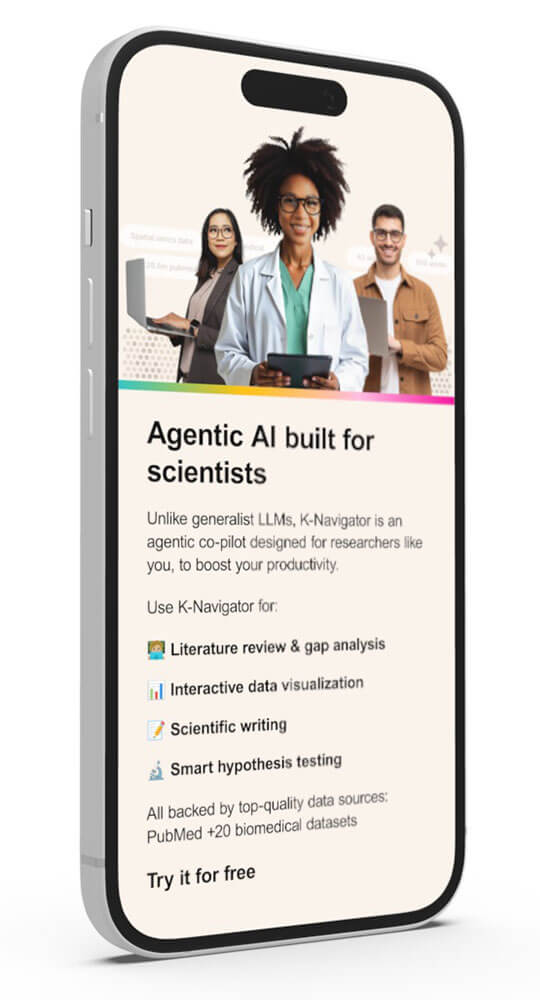
Share K Pro Free with your community

What is K Pro Free?
K Pro Free is an AI agent designed specifically for biologists and biomedical researchers. It’s a no-code platform designed to assists scientists in every day tasks such as scientific writing, literature review & hypothesis testing, data visualization.
Unlike general-purpose AI, K Pro Free is built for scientists, it combines scientific rigor with user-friendly design, ensuring every result is credible, transparent, and easily traceable back to trusted sources (PubMed and biomedical databases) - all through natural language interaction.
You can learn more about K Pro Free's features on the product page, and you can create your free account to try K Pro Free yourself on the signup page.
Resources
We have put together a series of useful materials and links:
Watch how K Pro Free works
Include it in your own newsletter
Agentic AI built for scientists
Unlike generalist LLMs, K Pro Free is an agentic co-pilot designed for researchers like you, to boost your productivity. Use K Pro Free for:
🧑🏼💻 Literature review & gap analysis 📊 Interactive data visualization 📝 Scientific writing 🔬 Smart hypothesis testing
All backed by top-quality data sources: PubMed +20 biomedical datasets



